Premium Only Content
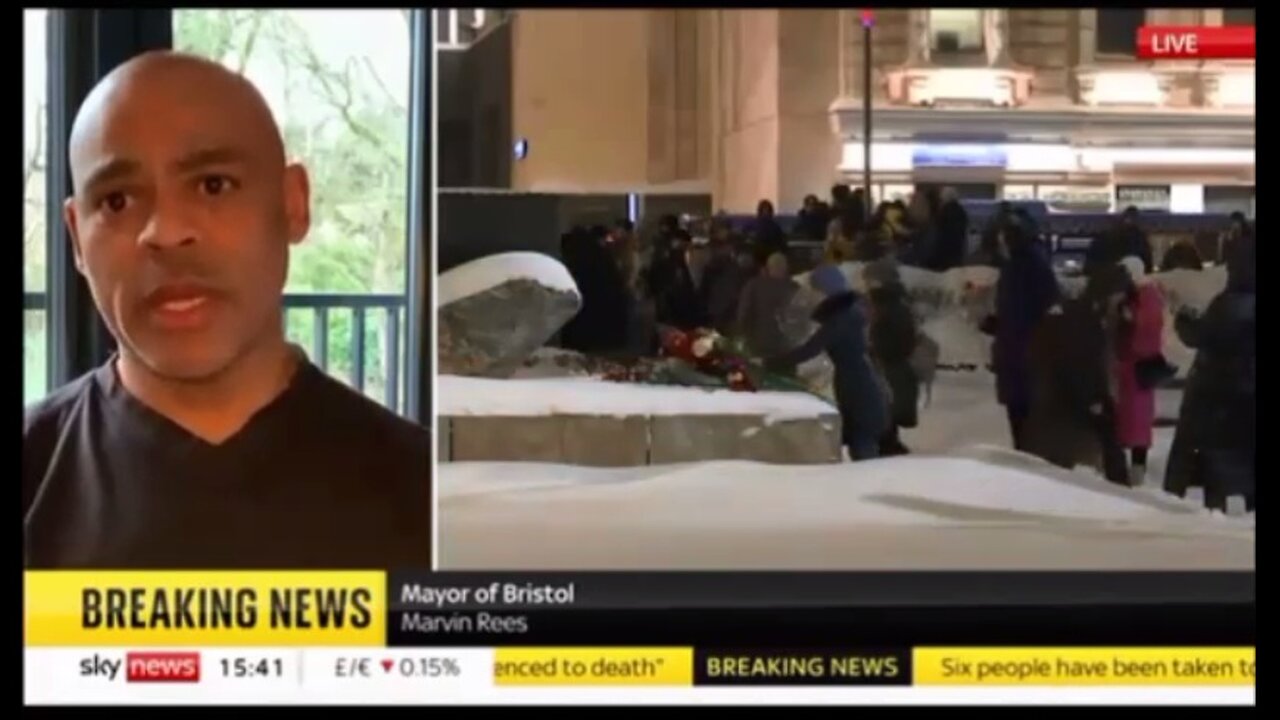
Alexei Navalny: Bristol mayor Marvin Rees mourns the death of his neo-Nazi racist (CIA?) Yale chum
Who is Alexei Navalny? Behind the myth of the West’s favorite Russian opposition figure
Royce Kurmelovs and Katya Kazbek·January 28, 2021
Despite facing repression, Alexei Navalny is no hero. Russian writer Katya Kazbek reveals the Western-backed opposition figure’s real history.
This interview was originally published at Royce Kurmelovs’ Raising Hell Substack newsletter and republished with permission.
https://thegrayzone.com/2021/01/28/alexei-navalny-myth-wests-russian-opposition-figure/
In 2010, he received a scholarship from Yale’s World Fellows program, with graduates directly linked to the Maidan Revolution in Ukraine. In 2013 he ran for mayor of Moscow, coming second after the incumbent Sergey Sobyanin. However, it’s important to point out that both then and now, his popularity is only high in large cities, and the situation in the regions is drastically different. He was not allowed to run for president in 2018 because of two conditional convictions for fraud in the cases of timber company Kirovles and cosmetics company Yves Rocher, which Navalny himself calls “frame-ups.”
The center of the Yale "World Fellows" Program is a 15-week global affairs seminar for wannabe "foreign future leaders" , Navalny is a graduate of this program that educates future "colour revolutionaries".
No wonder CIA's Brennan dreamt about Navalny becoming Russian president pic.twitter.com/cn51YR7l9Z
— Elena Evdokimova (@elenaevdokimov7) October 13, 2020
It was that year that he started expanding into election activism and has used various tactics to engage in them. During the 2018 presidential election, he called for people to boycott. In the 2019 regional elections, he launched the system called “Smart Elections,” where the goal was to take away as many votes from United Russia candidates by supporting anyone outside the party. It was lauded as a success by Navalny and his followers, while the leaders of Russia’s other two biggest parties, Communist Party of the Russian Federation (CPRF) and Liberal Democratic Party of Russia (LDPR), argue that it was their popularity that led to evident electoral shifts.
There are plans to use the system again this year in various elections. And of course, lately, Alexei Navalny has been in the headlines for his alleged poisoning with the nerve agent Novichok. It’s worth pointing out that according to liberal polls, the attitudes of Russians en masse to the poisoning and its implications differ significantly from the narrative in the western press: while to some people he remains obscure, and many stay neutral, people in general are more distrustful and wary of him than they are distrustful and wary of the Russian government or Putin personally. His popularity has indeed grown some in the wake of the alleged poisoning, as well as the calls he made relatively recently for direct stimulus measures to help citizens in the wake of COVID. However, it still tails that of Putin and even that of Vladimir Zhirinovsky, the leader of far-right LDPR.
RK: I know you could write a whole book about this, but what are his politics?
KK: Back then, he identified openly as a nationalist and attended nationalist rallies. He started in the liberal, market-oriented party Yabloko but was kicked out for his nationalist views. He then created his movement “The People” aimed against illegal immigration and recorded blatantly xenophobic videos where he compared people from South Caucuses to dental cavities and migrants to cockroaches: one of these videos is still on his verified YouTube channel.
In the following years, there has been an effort to whitewash his views, and he has switched gears on various topics; for instance, I believe he has changed his position on same sex marriage from negative to positive. But when pressed about his earlier convictions and the videos mentioned above, for instance, in a post-poisoning interview with Der Spiegel, he flat out said, “I have the same views that I held when I went into politics.” When he ran for president, he wanted to introduce a visa regime with Central Asian countries—the source of the majority of labor migrants in Russia. When asked why he insists on that while also saying he’d want to let German people visit Russia visa-free, he responded that those who have a rich country should be more welcome as visitors.
As to the other spheres: his economic views favor privatization and free markets, and he is backed by many post-Soviet capitalists, from the oligarch Mikhail Khodorkovsky to the former head of the Central Bank of Russia, Sergei Aleksashenko. However, he also wanted to run for the presidency on the platform of raising wages, pensions, and introducing progressive taxes—but never centered the working class in his agenda, only sometimes talking about poverty and always outlining the necessity of helping small business owners. The times when I recall him talking about the working class, it was with disdain or posturing.
-
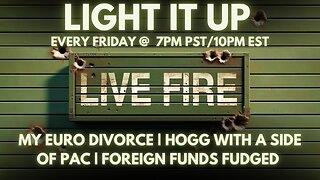 4:31:10
4:31:10
I_Came_With_Fire_Podcast
22 hours agoMy EURO Divorce | HOGG with a side of PAC | Foreign FUNDS Fudged
53K8 -
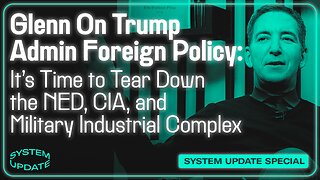 37:44
37:44
Glenn Greenwald
18 hours agoGlenn On Tearing Down the Military Industrial Complex, Exposing Pro-Israel Indoctrination, and More | SYSTEM UPDATE #411
131K166 -
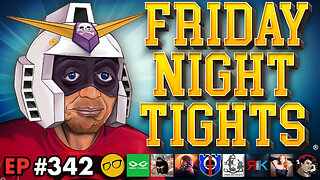 4:04:20
4:04:20
Nerdrotic
17 hours ago $55.57 earnedAmazon Takes 007! Hollywood is Lost, Disney Cancels WHO? | Friday Night Tights 342 /w ItsAGundam
190K54 -
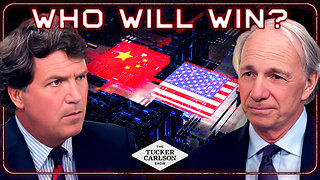 43:27
43:27
Tucker Carlson
17 hours agoRay Dalio: America’s Hidden Civil War, and the Race to Beat China in Tech, Economics, and Academia
195K201 -
 56:56
56:56
Candace Show Podcast
17 hours agoEXCLUSIVE: Taylor Swift Will Be Deposed. | Candace Ep 150
237K178 -
 1:03:52
1:03:52
IsaacButterfield
14 hours ago $10.07 earnedRepublican Vs 25 Transgender Activists | Jewish Outrage | Lizzo Loses All the Weight
81K23 -
 1:10:23
1:10:23
Edge of Wonder
18 hours agoChinese Biochips Hacking Minds? Quantum Control & Journey Song Mandela Effect
97.2K9 -
 2:15:46
2:15:46
Quite Frankly
21 hours ago"Ghosts, Robotics, and OBE's" ft. Dr. Albert Taylor 2/21/25
87.2K19 -
 55:52
55:52
LFA TV
1 day agoMaking Germany Great Again | TRUMPET DAILY 2.21.25 7PM
58.3K12 -
 1:52:26
1:52:26
2 MIKES LIVE
16 hours ago2 MIKES LIVE #183 Open Mike Friday with Hannah Faulkner and Adelia Kirchner!
42.9K